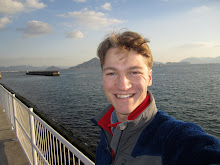Hello all and may I apologize for taking so long to write a second post. There have been many days of negotiations and meetings with the US state department to follow and participate in. Actions on behalf of the youth have been strong both inside and outside of the Convention Center.
This Saturday was a day of protest. 10,000 people or more marched 5 miles through the City Center and to the Conference center where they were turned away. I was inside, though many of my friends were a part of this peaceful and moving march. Sadly, it seems that most media, particularly in the U.S., reported only those arrested. May I make one thing clear. The Danish police and army have been given full authority to arrest anyone for up to 40 days in the name of the Queen without informing the detainee of the charges. They have used this measure liberally, as was witnessed on Saturday when 600+ were arrested, and have drawn a general belligerence from the ruling that is evident every day when NGOs attempt to legally enter the Conference center.
The high level section of the negotiations began on Tuesday. This was the beginning of truly high security measures. NGOs, of which there are thousands of representatives rightfully accredited by the UN, have been restricted in accessing the center. On tuesday a secondary badge was required for entrance. These were distributed to the focal points of each NGO constituency and subsequently passed down to the representatives themselves for entrance. I was lucky enough to get one. Today, 7000 are available and I am again inside the center following policy developments. Tomorrow there will be 1000 and on friday there will be 500, originally 90. This has effectively removed the civil society from the conference.
The current situation reveals the tensions and chaos that undulate beneath a formal, light blue exterior. Inside the Plenary room, heads of states are addressing the plenary, currently the assistant president of Sudan, seemingly talking past each other while attempting to apply political pressure. About an hour ago, the Executive Secratary Yvo de Boer announced that the President of the meeting (Danish Minister of Environment) resigned and was replaced by the Danish PM Lars Rasmussen. This is a common tactic prior to high level meetings of heads of state, particularly when there are this many. Furthermore, the Presidency announced that it would release a new text outlining the outcome of the Conference and potentially the deal to be struck. This has caused a tremendous amount of controversy on the floor as developing countries see this as the developed world circumventing the established procedures, which are producing texts equally valid for an outline of the deal, and attempting to eschew a fair deal. The Danes argue that the text is an attempt to expedite the process and achieve some sort of agreement. No doubt both arguments have merit, but there are certainly fishy backdoor politics being reflected.
The prime minister of Ethiopia now takes the podium.
Outside there are hundreds of protesters, both accredited and not allowed in under the new restrictions and not accredited. When i arrived this morning the police were decked in riot gear, dogs snarled on leashes, and enormous anti-riot vehicles sat intimidating the incoming crowd. At 12 noon local time, much of the civil society inside the Convention center walked out in protest to restrictions and lack of movement in the negotiations. They were met, as planned, by hundreds of protesters who rushed the gate in an attempt to join in solidarity and hold a people's convention in the security buffer zone. All that i saw from this event was a small and shaky video clip posted via cellphone of batons crushing the protesters and NGO representatives alike. I'm sure that violence will ensue throughout the day and i'm sure that the media will obscure the message.
The prime minister of Grenada now takes the podium.
Each of these extremes represent different social expressions of the same chaos. We are called to act on behalf of current and future generations. Yet the roots of this climate change problem are burrowed too deeply into our politics, our economies, our daily lives. I do not know what will bring us together to resolve the problem, but i now see that it will not be a two week conference capped by two or three days of high level international politics. It will take years of diplomacy, countless green business initiatives, and a fundamental shift in our economy and daily lives.
Later this week Barack Obama will speak in front of the entire meeting. He will attempt to press forward with the frayed political agreement soon to rise from the negotiations. He will commend the work of negotiators and activists and highlight the work achieved. However he is not able to single handedly turn down the thermostat. It is our responsibility to change the future. But for now, the prime minister of Lesotho takes the podium.
Yours,
Drew
P.S. As always I look forward to hearing your questions and comments about the Convention.






